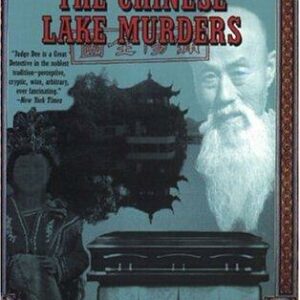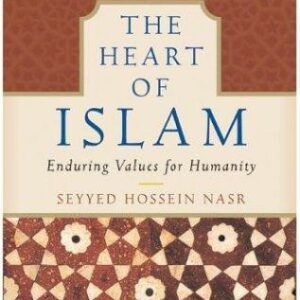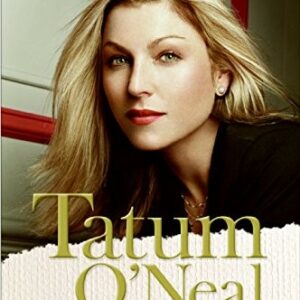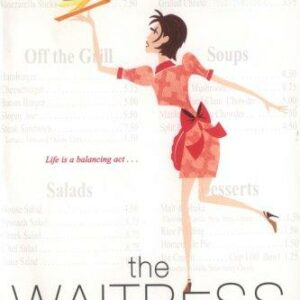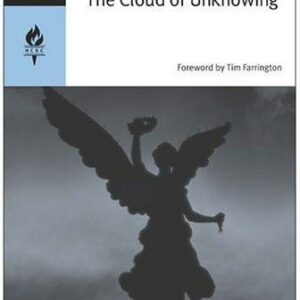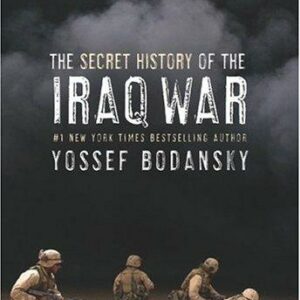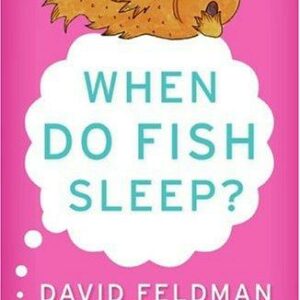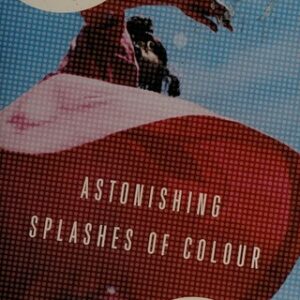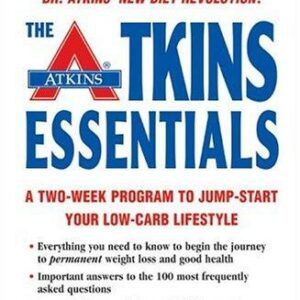Miracle’s Boys
$8.99
| Title | Range | Discount |
|---|---|---|
| Trade Discount | 5 + | 25% |
- Description
- Additional information
Description
From a four-time Newbery Honor author, a novel that was awarded the 2001 Coretta Scott King award and the Los Angeles Times Book Prize
For Lafayette and his brothers, the challenges of growing up in New York City are compounded by the facts that they’ve lost their parents and it’s up to eldest brother Ty’ree to support the boys, and middle brother Charlie has just returned home from a correctional facility.
Lafayette loves his brothers and would do anything if they could face the world as a team. But even though Ty’ree cares, he’s just so busy with work and responsibility. And Charlie’s changed so much that his former affection for his little brother has turned to open hostility.
Now, as Lafayette approaches 13, he needs the guidance and answers only his brothers can give him. The events of one dramatic weekend force the boys to make the choice to be there for each other–to really see each other–or to give in to the pain and problems of every day.
Jacqueline Woodson (www.jacquelinewoodson.com) is the recipient of a 2023 Guggenheim Foundation Fellowship, a 2020 MacArthur Fellowship, the 2020 Hans Christian Andersen Award, the 2018 Astrid Lindgren Memorial Award, and the 2018 Children’s Literature Legacy Award. She was the 2018–2019 National Ambassador for Young People’s Literature, and in 2015, she was named the Young People’s Poet Laureate by the Poetry Foundation. She received the 2014 National Book Award for her New York Times bestselling memoir Brown Girl Dreaming, which was also a recipient of the Coretta Scott King Award, a Newbery Honor, the NAACP Image Award, and a Sibert Honor. She wrote the adult books Red at the Bone, a New York Times bestseller, and Another Brooklyn, a 2016 National Book Award finalist. Born in Columbus, Ohio, Jacqueline grew up in Greenville, South Carolina, and Brooklyn, New York, and graduated from college with a B.A. in English. She is the author of dozens of award-winning books for young adults, middle graders, and children; among her many accolades, she is a four-time Newbery Honor winner, a four-time National Book Award finalist, and a three-time Coretta Scott King Award winner. Her books include Coretta Scott King Award winner Before the Ever After; New York Times bestsellers The Day You Begin and Harbor Me; The Other Side, Each Kindness, Caldecott Honor book Coming On Home Soon; Newbery Honor winners Feathers, Show Way, and After Tupac and D Foster; and Miracle’s Boys, which received the LA Times Book Prize and the Coretta Scott King Award. Jacqueline is also a recipient of the Margaret A. Edwards Award for lifetime achievement for her contributions to young adult literature and a two-time winner of the Jane Addams Children’s Book Award. She lives with her family in Brooklyn, New York.
ABOUT JACQUELINE WOODSON
Born on February 12th in Columbus, Ohio, Jacqueline Woodson grew up in Greenville, South Carolina, and Brooklyn, New York and graduated from college with a B.A. in English. She now writes full-time and has recently received the Margaret A. Edwards Award for lifetime achievement in writing for young adults. Her other awards include a Newbery Honor, a Coretta Scott King award, 2 National Book Award finalists, and the Los Angeles Times Book Prize. Although she spends most of her time writing, Woodson also enjoys reading the works of emerging writers and encouraging young people to write, spending time with her friends and her family, and sewing. Jacqueline Woodson currently resides in Brooklyn, New York.
RELATED TITLES
Dancer
by Lorri Hewett
Stephanie works hard to pursue her dream of becoming a professional ballerina while coping with the pressures of her family expectations and those at her mostly white private school.
Lives of Our Own
by Lorri Hewett
African American Shawna and white schoolmate Kari defy the unspoken social standards of their small town as they work together to reveal a hidden community secret.
Money Hungry
by Sharon Flake
A period of homelessness and poverty has made Raspberry Hill determined to hoard as much cash as possible.
Monster
by Walter Dean Myers
Aspiring filmmaker Steve Harmon copes with his arrest for murder by relating his story as if it were a movie script.
145th Street
by Walter Dean Myers
The highs and lows of one Harlem neighborhood are explored in ten stories.
Othello: A Novel
by Julius Lester
This novelization of Shakespeare’s classic play revisits the story of interracial love and tragedy.
Tears of a Tiger
by Sharon Draper
Andy Jackson, feels responsible for the death of his good friend, Robert, in a drunk driving accident.
Zack
by William Bell
Zack, the son of a African American mother and a Jewish father, experiences racial rejection for the first time when his family moves from Toronto to a small college town, and feels a need to connect with his family history.
OTHER BOOKS BY JACQUELINE WOODSON
Last Summer with Maizon
Reissue available Summer 2002
HC: 0-399-23755-0
PB:TK
Between Madison and Palmetto
Reissue available Fall 2002
HC: 0-399-23757-7
PB: TK
Maizon at Blue Hill
Reissue available Fall 2002
HC: 0-399-23576-9
PB: TK
AN INTERVIEW WITH JACQUELINE WOODSON
Why do you write for young adults?
I think it’s an important age. My young adult years had the biggest impact on me of any period in my life and I remember so much about them. When I need to access the physical memories and/or emotional memories of that period in my life, it isn’t such a struggle. And kids are great.
The issue of identity is central to the three books under discussion, yet each seems to approach this topic differently. Was this a deliberate choice on your part? What does each of these stories say about the teen characters and their struggles to define themselves?
Identity has always been an important and very relevant issue for me. For a lot of reasons, I’ve been ‘assigned’ many identities. From a very young age, I was being told what I was—black, female, slow, fast, a tomboy, stubborn—the list goes on and on. And this happens with many children as they are trying to become. So that by the time we’re young adults, no wonder we’re a mess!! There are so many ways we come to being who we are, so many ways in which we search for our true selves, so many varying circumstances around that search. No two people are alike but every young person is looking for definition. My journey as a writer has been to explore the many ways one gets to be who they are or who they are becoming.
What do you do differently, if anything, when you tell a story from a male perspective?
When I’m writing from a male perspective, I try to imagine myself as a boy and I really try to remember as much as I can about the guys I knew and know. It’s very different than creating girl characters but I love the challenge of it.
Although these are very different stories, they each reflect what can happen to African Americans when they are impacted by the criminal justice system. What do you want your readers to understand about this?
I don’t really know what I want readers to understand. I know what it helps me to understand—that the criminal justice system has historically not worked for African-Americans, that the percentage of people of color as compared to whites in jail, killed by cops, racially profiled and constantly singled out is unbalanced. I want the system to be different and the only way that it can change is if the way our society looks at race changes. And the only way that can happen is if people really start paying attention and making a decision to create change.
DISCUSSION QUESTIONS
- Each of the three brothers is haunted by a past incident involving their parents. Describe each incident and tell how it continues to bother each of the boys. How do they each deal with what Ty’ree calls “a monkey on their back”?
- Why does Charlie act so hostile to his brothers when he returns from Rahway Home for Boys?
- Lafayette has a difficult time coping after his mother’s death. How does the psychologist help?
- Although the boys are on their own after Milagro’s death, they receive some help from their Aunt Cecile. What kind of help does she provide?
- Describe Charlie’s friend Aaron. How does he interact with Lafayette? Why? What kind of choices is he making about his life?
- People in the neighborhood refer to Ty’ree as “St. Ty’ree.” Why has he earned that nickname?
- Lafayette has strong memories of his mother as a reader, particularly reading Toni Morrison. How does the quote “The function of freedom is to free someone else” relate to Ty’ree, Charlie, and Lafayette?
- Issues about money and poverty confront the family constantly. How did Milagro show her values concerning money? How do the boys accept or reject her feelings?
- What do you think will happen to Miracle’s boys?
Chapter One “Brothers is the baddest. Then comes Dominicans. Dominicans don’t mess around. I’m cool with Dominicans though. They don’t mess with me, I don’t mess with them.
I lay back on my bed and listened to my brother Newcharlie talking. We had shared this room since the day I was born. And I swear since the day I was born, he’d been going on about who was the baddest. Used to be Puerto Ricans were the second baddest, but somewhere along the road their status dropped. Brothers were always at the top or the next ones down.
Newcharlie wasn’t talking to me. Since he’d gotten home from Rahway Home for Boys a few months ago, he never talked to me. He was combing his hair and talking to Aaron. They’d known each other forever to say “W’s up” and stuff, but they didn’t start hanging till Newcharlie came home from Rahway. Seems once Newcharlie saw the inside of Rahway, most of the guys around here who cut school, hung out real late, and got into all kinds of stuff thought he was some kind of wonderful. Aaron acted like he wanted to kiss the heels of Newcharlie’s shoes, hanging on to Newcharlie’s words like they were something special. And Newcharlie was just as stupid over Aaron. Hanging out with him like Aaron was his brother. Like Aaron was me.
Newcharlie and Aaron were the same height and walked the same way, and now they had the same meanness. Aaron’s meanness had always been around him. Even when we were small, we’d walk past him and he’d say something negative. Like when Mama used to make us go to church on Sundays. We’d be all dressed up walking to the bus stop, and Aaron’d say something like “Mama’s church boys going to meet their maker.” Or the time our big brother, Ty’ree, stopped him from snatching this little kid’s Halloween bag. Aaron didn’t take the bag, but he kept glaring over his shoulder as me and Ty’ree and the kid walked away, saying, “That’s all right, church boy. That’s all right.” Like he had something waiting for us later on. Newcharlie’s meanness was as new as his name. He’d come back from Rahway with it, and the way he and Aaron hung so tight, you’d think he didn’t remember those days when we crossed to the other side of the street when we saw Aaron and his boys hanging out.
I watched Newcharlie part his hair on the side and comb it one way, then shake his head, part it on the other, and pull the comb through it again. His hair’s curly, like our mama’s was?jet-black curls that girls go crazy for. He’s three years older than me but only a little bit taller, and at the rate he was going schoolwise, come this time next year, I’d be almost caught up with him. I’d just started seventh grade and Newcharlie was repeating ninth, but he didn’t seem to care one way or the other.
The old Charlie would have cared about me catching up to him. He would have sat down at the dining-room table and crammed, because he would have been embarrassed about me being in almost the same grade as him. See, the old Charlie had feelings. If Charlie saw a stray cat or dog, he’d start crying. Not out-and-out bawling, but he’d just see it and start tearing up.
Sometimes, when we were out walking, he’d turn away real fast and I’d know it was because he saw the shadow of some stray animal and was wishing it wasn’t out in the cold. Once he told me that some nights he lay in bed just praying for all the stray animals out there. There’s a lot of them, you know, Charlie said. And probably not a whole lot of people praying for them. He told me about St. Francis of Assisi, how he was the guy who looked out for all the animals. He said him and St. Francis were the only two asking God to help those animals walking the cold streets not to freeze to death. I promised Charlie I’d pray too.
And sometimes, late at night, Charlie would just start talking, telling me stories about how things were before I was born?memories of him and our older brother, Ty’ree, and my mama and daddy together. Wasn’t ever anything mean in it?like that he wished I hadn’t been born or something?just stories, quiet stories that would make me smile and help me fall asleep.
Now I called him Newcharlie because Rahway hadn’t sent the guy I was just talking about home. This guy standing at the mirror moving his hair around his head was someone?something?different. Not the guy who used to laugh and tell jokes and put his arm around my shoulder. This guy never did any of those things. Ever.
Right after he came home from Rahway, I got up in the middle of the night to look at him. He’d been away for more than two years, and the guy sleeping across from me was a stranger. Some days he’d just sit on that bed with his hands hanging down between his knees. Just staring out the window and looking evil. But when he was asleep, his face spread out?all the frowns and scowls just kind of faded and he looked like Charlie again, ready to care about something, to be happy, or to cry about stray animals.
Newcharlie checked himself out for a moment without saying anything. He’s light brown with thick black eyebrows and Mama’s nose. He winked at himself, then caught me watching him in the mirror and gave me the finger. I looked away from him without giving him the finger back.
What changed you, Cha? I wanted to ask him. What made you cold?
“Ya’ll don’t go to church no more?” Aaron nosed.
I swallowed and caught Newcharlie’s eye. He looked back at me for a second, then frowned.
“Church is for little boys,” he said. “Little mama’s boys. I look like a little mama’s boy to you?”
Aaron shrugged.
The last time any of us was in a church was for Mama’s funeral. I didn’t want to see the inside of one again. Least not for a long time. Least till the thought of even passing by one isn’t enough to make me choke up and start bawling about Mama.
“Stupid little mama’s boys like Lala,” Newcharlie said.
“My name ain’t Lala,” I said.
In the summer I go down south to my great-aunt Cecile’s house. If the watermelons are ripe, she’ll buy one. When we get home, she always takes it out back and breaks it open against a rock, then scoops out the heart of it?the sweetest, reddest part?and hands it to me. I stared out the window. Somebody had done that to Charlie: scooped out his heart and sent the empty bitter rind of him on home.
Aaron was sitting on the bed directly across from mine, Newcharlie’s bed, and he was rolling one of his pants legs up real slowly. Sometimes when he looked at me, I felt the coldness, like somebody was dripping ice water down my back.
“Anyway, Puerto Ricans,” Newcharlie said. “If they’re in a gang, then you got a problem. But if they’re on their own, then it’s cool. Most of the ones in Rahway had gangs behind them.”
“I don’t know no Puerto Ricans that ain’t in a gang, Cha,” Aaron said.
“What’re you talking ’bout?” I said. “We’re half Puerto Rican and we ain’t in no gang, and you’re all Puerto Rican and you ain’t either.”
“How you know what I’m in with your little self?” Aaron said. “You don’t know nothing about me, little boy.”
Aaron looked me up and down like he was looking at something that didn’t even have a right to be in the world. He was wearing a Yankees baseball cap with the front of it pulled down over his eyes so that he had to lift his whole face to look at me. I thought that was a stupid way to wear a hat but didn’t say anything about it.
“I don’t know what my size got to do with anything, but I know you ain’t in no?”
“Mind your business, Lala.” Newcharlie glared at me through the mirror. “Nobody in this room talking to you. You hear anybody call your name? When somebody calls your name, then somebody’s talking to you, and nobody in this room is ever gonna be calling your name.”
“So just keep your stupid mouth closed,” Aaron said, “and maybe you’ll live.”
“Lafayette,” I said. “My name ain’t no Lala. It’s Lafayette.”
I turned away from both of them and stared out the window. If you ever had a brother who didn’t like you, then I don’t have to explain it. Feels like being a stranger in your own house, like everything that used to mean something doesn’t anymore. Even your own name. Newcharlie’d hated my guts since Mama died, and he wasn’t shy about letting anybody listening know it. Most times when he and Aaron got to talking, I just stayed quiet. If I was real quiet, it was like I was invisible. And if I was invisible, Newcharlie couldn’t hate me.
“What about white boys?” Aaron asked.
“White boys?! What you think about white boys?”
“Don’t know, Cha. That’s why I’m here asking you. You act like you know everything about Dominicans and Ricans and brothers, I figure?”
” ‘Course I know about white boys,” Newcharlie said. “They not even worth mentioning. It’s like if you have a totem pole of badness, right? You got the brothers at the top, then the Dominicans and the Puerto Ricans in gangs, then the Puerto Ricans not in gangs?and maybe some of those Chinese guys that’s in gangs?”
“They know karate and stuff, too,” Aaron said. “Like Jackie Chan. Jackie Chan can mess some brothers up, yo.”
“Yeah, like if they know karate, then they probably go before the Puerto Ricans in gangs?”
“Except if the gangbangers got guns.” Aaron looked over at me. “Blow somebody’s head off.”
I chewed on my bottom lip and didn’t say anything. Once, before he went to Rahway, Charlie took me to see a Jackie Chan movie. When we came out of the movies, I started kicking and chopping and stuff, telling Charlie I wished I was Chinese so then I could know karate. Charlie put his hand on my shoulder and turned me toward him.
“Not all Chinese people know karate,” he said. “That’s a stereotype.”
I didn’t know what he was talking about, but his hand was hard on my shoulder, so I stopped chopping.
“Like when people say all black people are lazy or something,” Charlie said.
I shrugged. A few months later I saw another movie. Only it wasn’t Jackie Chan and it wasn’t about karate. It was about this couple and they had this landlord who lived upstairs who was supposed to be Chinese or something. Only he wasn’t really. He was some guy making believe. When people in the audience started laughing at the way the guy was talking, I felt weird, like it wasn’t right.
“But if they know karate,” Newcharlie was saying, “then they can kick a gun out of a gangbanger’s hand, right?”
“Yeah,” Aaron said. “You right. If they’re fast enough. Don’t a bullet travel at the speed of sound or something?”
“Depend on the gun, probably,” Newcharlie said.
I wanted to remind Newcharlie about that day at the Jackie Chan flick, about his hand on my shoulder and what he’d said. And I wanted to tell Newcharlie that he had the totem pole idea all screwed up. If brothers were at the top, that meant they were the least bad. Anybody who knew even the tiniest bit about totem poles knew that the most important was at the bottom. But I bit my bottom lip and didn’t say anything.
“Then after every every every body else,” Newcharlie was saying, “then you got white boys.”
“What about that guy David?” Aaron asked. “The one from Rahway?”
I looked at Newcharlie in time to see him glance at me in the mirror, then cut his eyes back at Aaron. He wasn’t allowed to talk about Rahway in front of me. Ty’ree didn’t allow it. But Ty’ree was at work, and Newcharlie took every chance he could get to do the opposite of what Ty’ree said. He turned toward Aaron and leaned back against our dresser. Then he dropped his voice real low.
“I saw him make a knife out a slipper spoon,” he said. “His moms had sent him one ’cause he kept saying his shoes was getting too small, and since she couldn’t afford to buy him a new pair of shoes, she sent him some Vaseline and one of those things make putting your shoes on easier?I know they got another name, but he called it a slipper spoon.” Newcharlie eyed me, daring me to give the right name for it. I looked up at the ceiling and didn’t say anything. I loved stories about Rahway.
“Every night I’d hear something scraping and scraping?real soft against the floor, like you had to listen real hard to hear. Sounded like a shy cat against a screen door?just like a little whisper of a scrape, but I knew what it was, so it sounded real loud to me. Like a clock ticking away somebody’s life.”
“How he gonna sharpen it on the floor, yo?”
Newcharlie rolled his eyes. “Floors in Rahway ain’t regular floors. Everything there’s made out of cement?walls, ceilings, floors?like you living inside a big gray rock. Winter you feel like you’ll freeze to death inside that rock. Summer you think you gonna fry.”He stared into the mirror. Only he wasn’t looking at himself anymore. He was looking somewhere else. Someplace far away.
“Everywhere, everywhere cement,” he said, his voice dropping lower. “And all of us always marching in a line?to the bathroom, to grub hall, to yard time. No talking, just marching, marching. Say one word and the C.O.’s calling your last name and taking something away from you?no TV, no yard time, no rec hall. . . .” He was still looking at that faroff place, but he was whispering now. “No you. No more.”
I pressed my back into the wall, the white white walls Mama had painted to make our room bright, and tried to imagine my brother inside that stone place. The place he’d gone back to after Mama’s funeral. No Mama. No name.
“Who that guy kill, Cha?” Aaron said.
Newcharlie blinked and looked from me to Aaron like he wasn’t sure who we were or why we were there.
“Who?”
“That guy David, yo. The one with the slipper spoon,” Aaron said. “What’s wrong with you, man? You’re like ‘beam me up’ or something.”
“It’s not deep, A. I’m just trying . . . to remember . . . all of it. Few days later David showed me the slipper spoon, only it wasn’t a slipper spoon no more. He moved it real light across his finger and one drop of blood came out. Reddest blood I’d ever seen in my life. I mean, he like barely touched his finger and that drop of blood was there. His finger was real pale, and that blood just stood out on it. All thick and red. I looked at that blood and knew the next person come in contact with that slipper spoon was never gonna hear the words ‘happy birthday’ again.”
“Who he kill?” Aaron asked again.
“Yeah,” Newcharlie said. “I’d have to put David higher on the totem pole than other white boys.”
Aaron grinned. “You ain’t gonna say ’cause of Lala?”
Newcharlie nodded.
“I know he didn’t kill anybody,” I said. “I know the C.O. found that shoehorn under David’s pillow one day while ya’ll were out in the yard and David got sent off to another place?worse than Rahway.”
Newcharlie gave me a dirty look. “That’s what you think, stupid. That’s what Ty’ree says to tell you, but that ain’t what happened. And since you think you know so much, I’m really not gonna say. I almost said, too. Then you had to go and open your fat mouth. That’s what you get, you little . . .” I waited for him to say it, but he didn’t and I felt my stomach relax.
He turned back to the mirror. Newcharlie was wearing a plaid long-sleeved shirt and baggy jeans. He unbuttoned the top button, then buttoned it again and checked himself out one more time.
“You ready?” Newcharlie asked.
Aaron nodded.
“Then let’s step.” He looked at me. “When Ty’ree gets home, you tell him we just left too, you hear me?”
I kept staring out the window.
“Your brother talking to you, man.” Aaron said.
“Yeah?I hear you.”
“Later, Milagro killer.”
“Oh shoot.” Aaron laughed. “That’s cold, man.”
“It’s true,” Charlie said.
I swallowed and looked down at my hands so Newcharlie wouldn’t see my eyes tearing up. I could hear the door slamming in the living room and him and Aaron running down the stairs, taking them two at a time the way they always did. A few minutes later I heard Newcharlie calling out to somebody. It was gray out. I stared at the sky and tried not to let his words sink in. I stared until the window blurred.
“I didn’t kill her,” I whispered.
Then I lay back on my bed and prayed it would pour down rain.Copyright?2000 by Jacqueline Woodson. Published by G. P. Putnam’s Sons, a division of Penguin Putnam Books for Young Readers. All rights reserved.US
Additional information
| Weight | 6 oz |
|---|---|
| Dimensions | 0.4800 × 5.5600 × 8.2500 in |
| Imprint | |
| ISBN-13 | |
| Author | |
| Audience | |
| BISAC | |
| Subjects | realistic fiction books for kids 12-15, black girl books, black history for kids, black history month books for kids, newberry award books ages 9-12, summer reading for kids, books for black girls, african american children's books, african american authors, family, award winning fiction, books for 12 year old girls, african american books, realistic fiction books for kids 9-12, black girl magic, young adult books for boys, award winning books, JUV023000, realistic fiction, JUV013050, 5th grade reading list, 6th grade reading list |
| Format |


